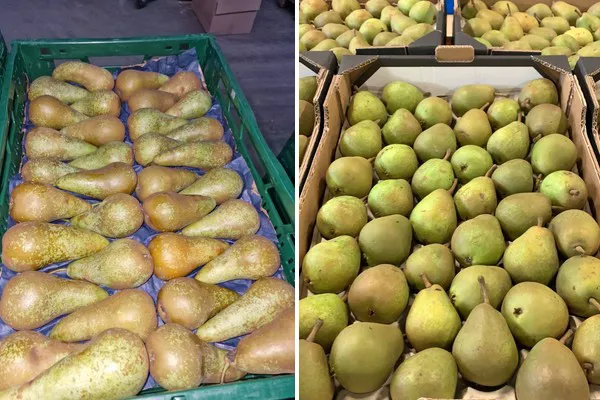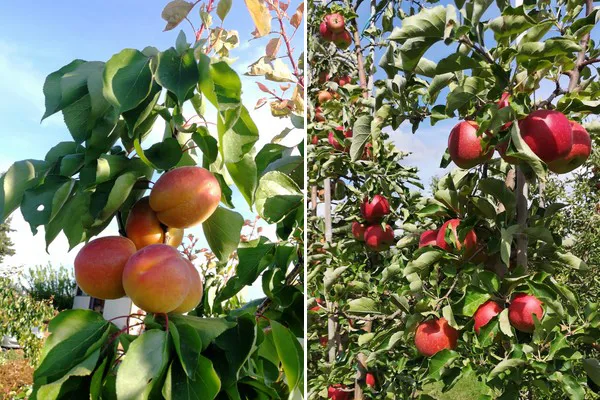The export market for Belgian organic pears has yet to take off. "Pears are selling a little slower than last year for now, but that's because demand came much earlier then. This year, we'll be heading to Switzerland around mid-January, whereas last year, we had already started by this time," says Gunther De Vadder, who oversees organic operations at BelOrta.
"It's a bit of a wave at the moment," he continues. "Last week, I reviewed all the figures for organic top fruit, and we are exactly on track compared to last year. We've sold slightly more, but that's mainly because the harvest was slightly earlier this year. The season is actually quite similar. Only pears are selling a little slower for now. This is primarily because export markets, like Switzerland, still have their own local product."

"In France, we're seeing a similar pattern. Demand there will pick up around the second week of January. In the UK, however, we're already doing relatively well. Weekly volumes have doubled over the last four weeks. Scandinavia is gradually entering the market, but I think Poland is still affecting it with cheaper pears. I also notice Polish pears being exported from the Netherlands to the UK. Not in large volumes, but it's always a mystery to me how they can offer them so cheaply. Poland had a poor harvest but still managed to keep prices low."
Communication
Before the harvest, there was some concern about whether the market would align with the overseas supply, but now it seems to be working out. "The harvest was 25 to 30 per cent smaller than in a 'normal' year, but since exports are slightly delayed, I expect we'll manage until the overseas organic supply arrives."
Gunther is also satisfied with the price. "The quality is slightly lower this year. We have to be honest about that—it was a very challenging growing season. However, customers have largely been understanding. Across Europe, nearly everyone faced the same issues, so there aren't better-looking apples or pears available elsewhere. What's unusual this year is that, despite the lower quality, we've managed to slightly increase prices due to the reduced volumes. Achieving this with fruit that looks inferior is a bit of a paradox, but I think it's due to clear communication. While the fruit might have some skin damage or coarseness, the taste remains the same inside, and people have accepted that. Of course, there's a limit to this acceptance, but people know what to expect."

Larger-sized apples widely accepted
For organic apples, the challenge was primarily about accepting larger sizes. "These are sold purely domestically for us, but they've been selling very well. With Topaz, we expect to continue until early January, which is quite early. Normally, we don't start selling from these cells until January, but Elstar apples moved quickly. They had fewer aesthetic issues because they're resistant to scab. We also had a few other varieties, like Santana, which sold quickly. We are now in Jonagold, and I expect we'll continue with this variety until about week 16 or 17. After that, Natyra, which is also scab-resistant, should fit in nicely. Overall, I expect the season to go smoothly."
"But we are indeed working with very large sizes," Gunther explains. "The main sizes are 80 to 95, which is no different from conventional apples. As a result, almost everyone adjusted their packaging accordingly and went along with it. A few customers insisted on sizes 70/75, but those made up only 13 per cent of the total supply, so they'll sell out eventually. The rest have adapted just fine. Again, good communication was crucial to ensure packaging adjustments were made, and that really helped. Moreover, larger sizes are cheaper, which benefits everyone."
For more information:
Gunther De Vadder
BelOrta![]()
Mechelsesteenweg 120
B-2860 Sint-Katelijne-Waver, Belgium
Tel: +32 155 655 291
info@belorta.be
www.belorta.be

